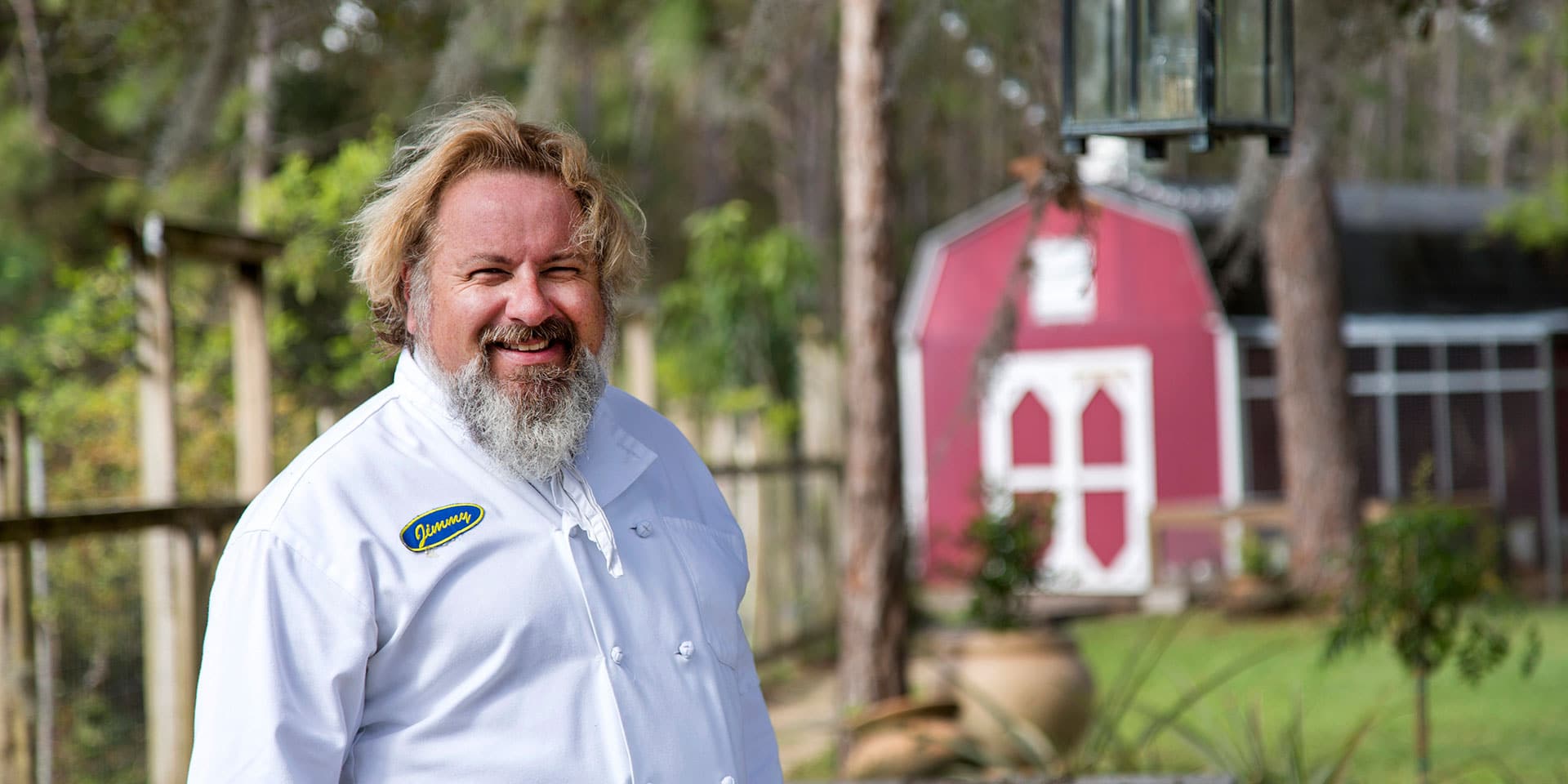
Beekeeper Jimmy Wessman oversees the apiary at Grande Lakes Orlando’s Whisper Creek Farm. (Photo: Rafael Tongol)
OrlandoHow Sweet it is: Meet the Resort Beekeeper Bringing Farm-Fresh Honey to Orlando and Beyond
By Holly KapherrBefore Chef Jimmy Wessman discovered a love for beekeeping and came to run the bee colony at Grande Lakes Orlando’s Whisper Creek Farm, he worked for years as a certified executive chef at prestigious country clubs across the United States.
But working nights, weekends and holidays got old, and he spent the next decade training future generations of culinary minds as a chef-instructor at Le Cordon Bleu College of Culinary Arts in Orlando until it closed in 2017.
“My wife always wanted to get into agriculture,” says Wessman, who met his wife Liz, also a chef-instructor and chef de cuisine, while teaching at the culinary school. “We originally considered cattle, but my mother-in-law reminded us that we knew nothing about cows other than how to make them taste good. From the moment we saw a bee hatch, we were hooked. We knew beekeeping was our future.”
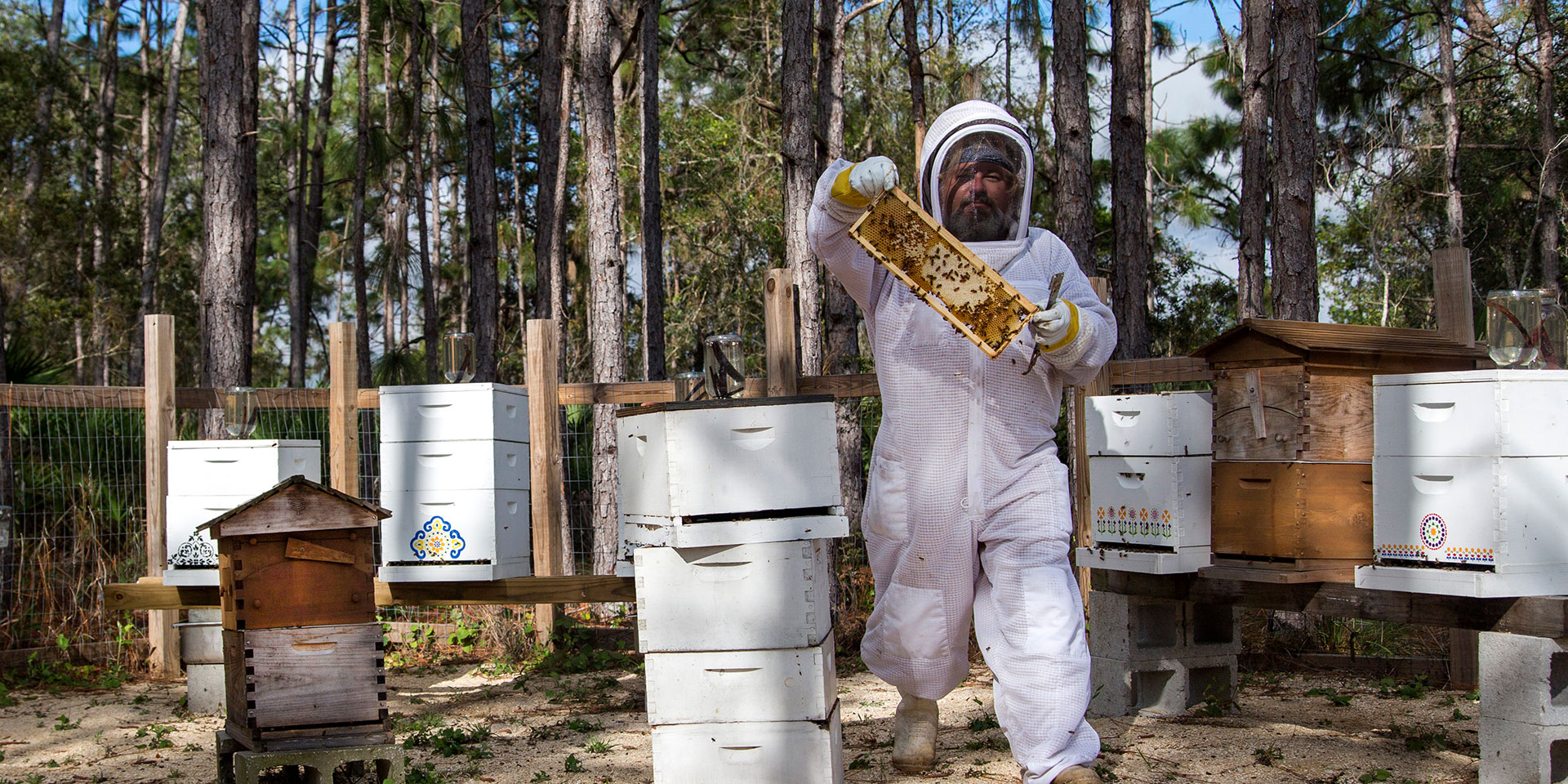
Today, he operates Bottom Stung Beekeepers and maintains 120 bee colonies in north and central Florida, including the ones at Grande Lakes Orlando’s Whisper Creek Farm — The Ritz-Carlton and JW Marriott Orlando, Grande Lakes’ organic farm featuring 7,000 square feet of garden, plus flocks of ducks, chickens and quail — which provides locally grown ingredients to the chefs on property.
The honey is used in the in-room dining and breakfast offerings, in the spa, and at chef Melissa Kelly’s outpost of her award-winning restaurant, Primo, at the JW Marriott Orlando, Grande Lakes, just next door to The Ritz-Carlton Orlando, Grande Lakes.
The back of Wessman’s Subaru bears a bumper sticker that reads “Caution: Bees on Board.” It’s not exaggeration, either. On a recent visit to see Wessman at Whisper Creek Farm, about 10 bees were buzzing around the Subaru’s tailgate, warming up in the February sun, ready to take off for their day’s work.
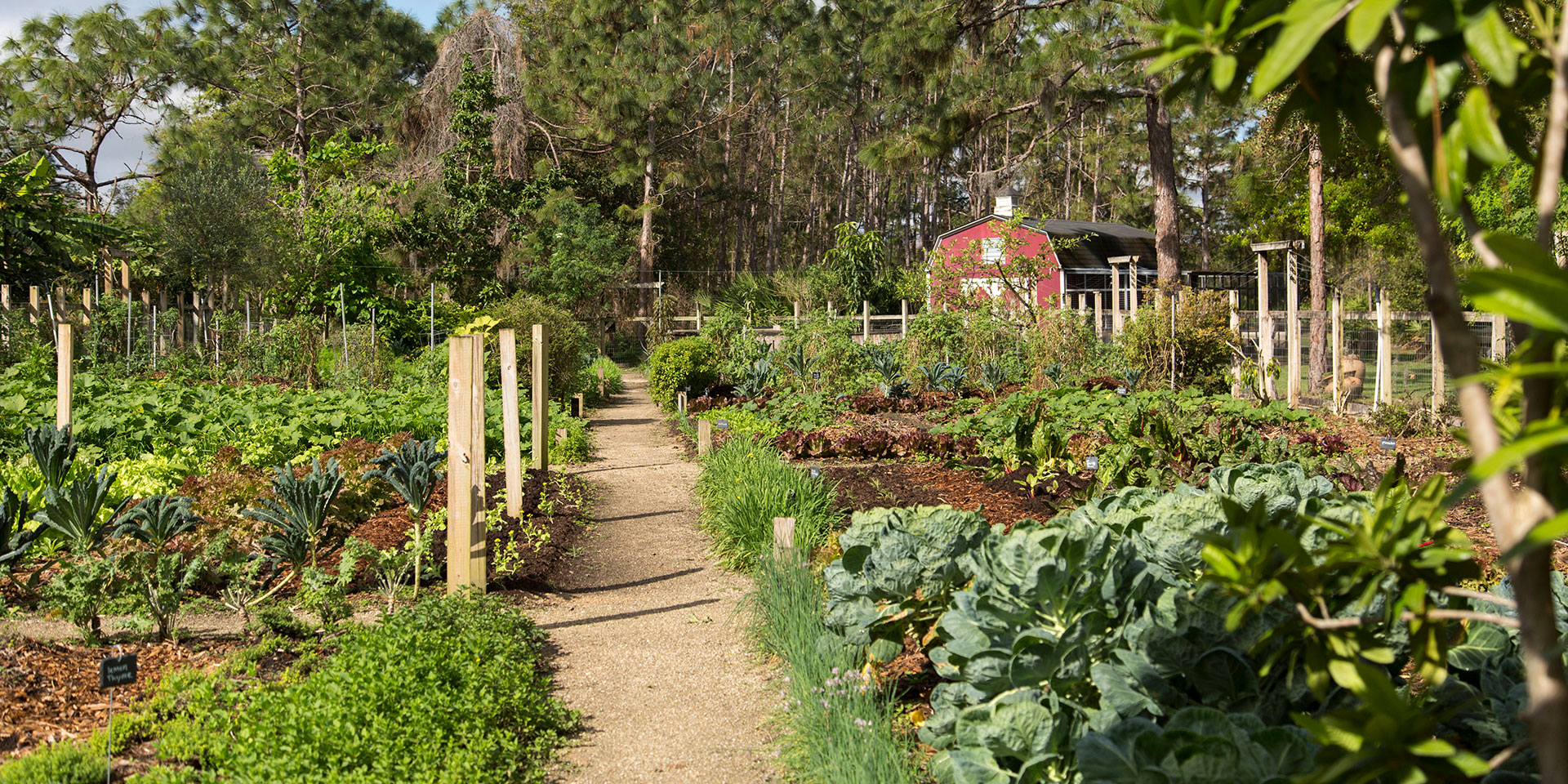
Wessman has a wealth of knowledge, and get him started chatting about the bees, and he’ll give you an education that showcases his prowess in the classroom.
How did you get into beekeeping?
My wife and I had some property in Tallahassee, and we did some research. We found Kissimmee Valley Beekeeper’s Association and the Orange Blossom Beekeeper’s Association to learn about keeping bees.
We found a mentor through those programs. Before we bought one bee, we went to his house, and he opened his hives.
We saw one bee hatch, and it was amazing. As soon as a bee hatches, it starts working. It wastes no time. We started with just a few hives, and now we have 120 colonies between north and central Florida.
We’re now also a part of the Master Beekeeping Program at the University of Florida, so we’ve effectively made this our lives.
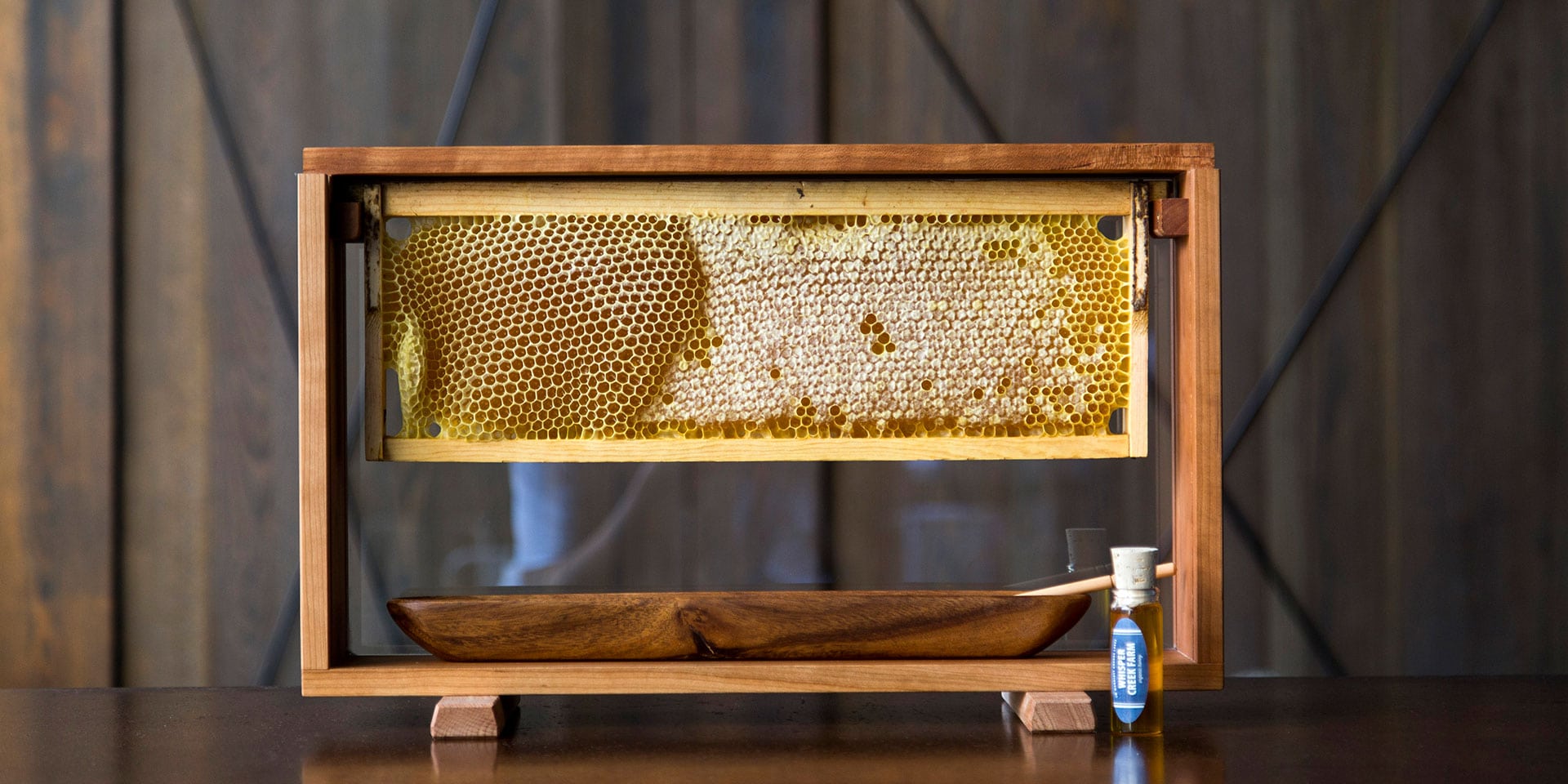
How did you come on board with The Ritz-Carlton Orlando, Grande Lakes?
I’m a graduate of the Culinary Institute of America, and we had our alumni meetings here. I learned that [Grande Lakes Orlando’s Whisper Creek] Farm had bees when I was giving a talk to the alumni about Le Cordon Bleu.
I always thought it was cool, but never in my life did I think I’d ever be the beekeeper here. When we were learning about beekeeping from the Orange Blossom Beekeepers Association, I heard the hotel was looking for someone to take care of the hives on property.
I knew there was a culinary component to keeping the bees, and as a chef, I felt like I could offer that insight along with my knowledge of bees. It has been a great fit for me.
Why is beekeeping important to you?
It’s a combination of a lot of things. I love being here [at Grande Lakes Orlando’s Whisper Creek Farm] for numerous reasons. I believe in what they do. I believe in the farm-to-table movement. They harvest the food here, shake the dirt off, and it goes straight to the hotel.
I love seeing that the product the bees are making here [is] important to the chefs in the restaurants.
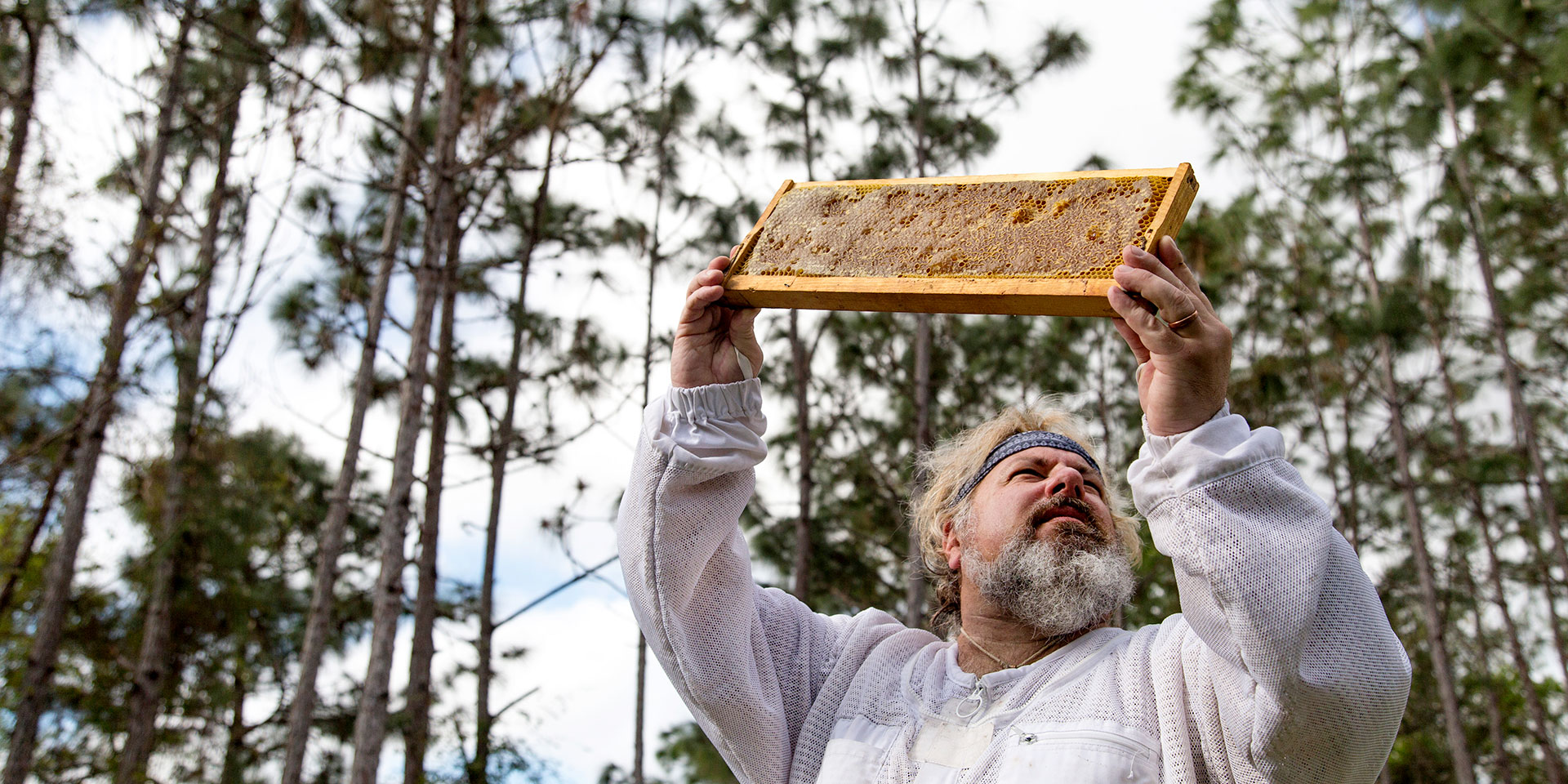
Do you have any funny stories about your time keeping bees?
[One night] I twisted up and curled my mustache with some wax. I went to bed and forgot about it. I came in the next day and grabbed the observation frame we had used for the event from the office so I could put it back in the hive.
I opened the top, and I really didn’t think I needed to light my smoker to subdue the bees. I was just going to be in the hive for a few seconds. I wore my bee suit, but there was a tiny hole I never noticed in the netting. I pulled about ten bees out of my beard [they liked the wax], and about 20 stingers out of my face. I ran around to the barn and just dowsed myself with water.
It’s funny now, but it wasn’t then. I call them professional hazards. Also, I’m actually allergic to bee stings, but my body has acclimated to being stung, so while it won’t kill me, I still get a little swollen if I’m stung. I keep the EpiPen in my wife’s car, just in case.
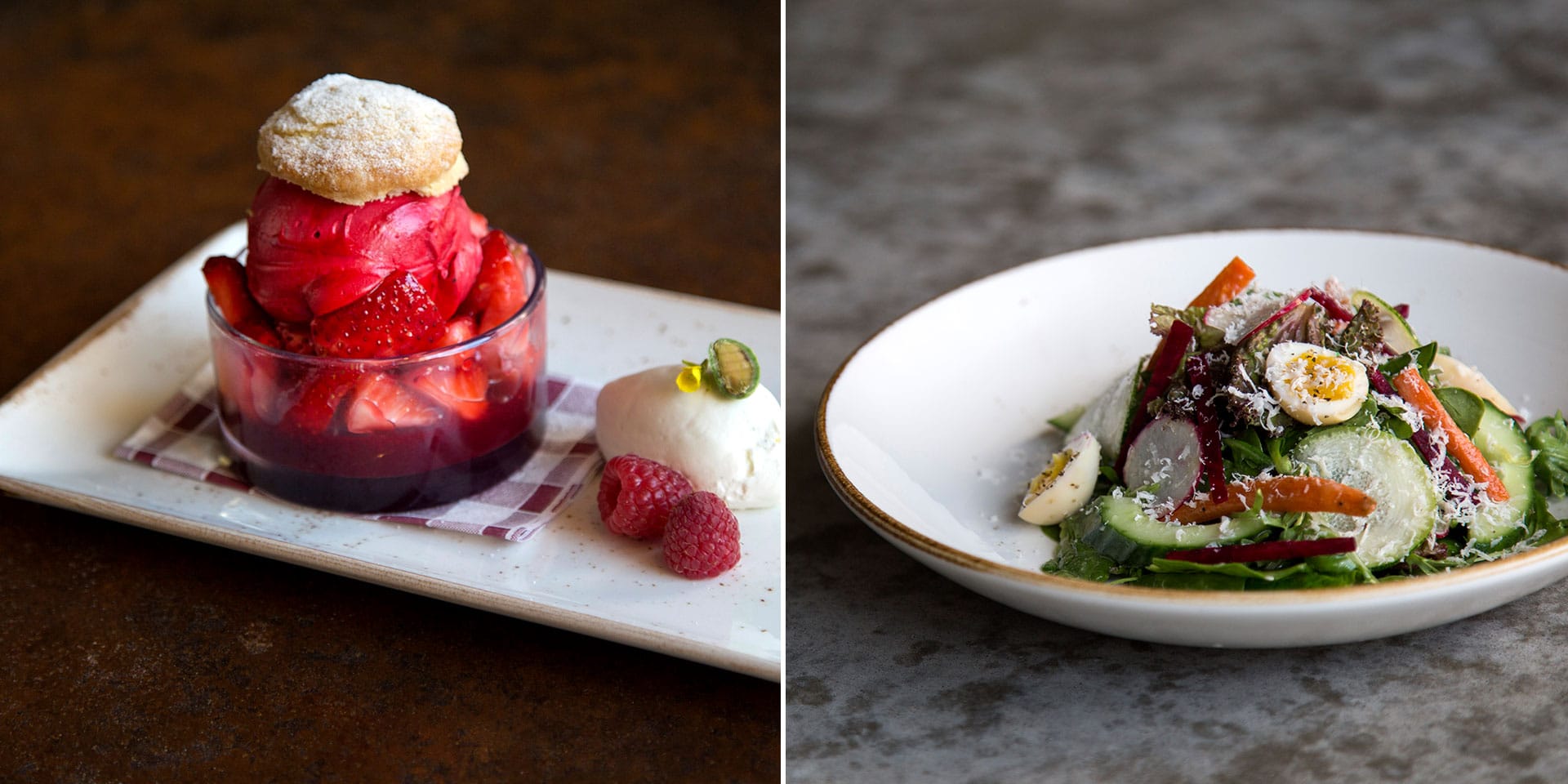
Last season was the farm’s best honey harvest to date. How do you transfer the honey to the hotel, and how do they use the honey from the hives?
We pull a frame of honey out, brush off the bees, put it in a plastic sleeve and close it up. The chefs will put it in the freezer so they can use it as needed for events and recipes.
They take the frame and put it on a food display for the breakfast buffet or a cheese and charcuterie display. Guests can then serve themselves honey and honeycomb straight from the frame. It’s a fun way to go straight to the source for an ingredient.
We also will sometimes create a “working observation frame” display, where we take the whole frame with the bees and encase it in glass so guests can see the bees working on the comb. They also have their own extractor on property that they use to bottle the honey.
Sometimes they’ll also ask me to come in and talk about the bees, the honey and how it pairs with food. I love being able to showcase the farm-to-table aspect of the resort and flex my education muscles.
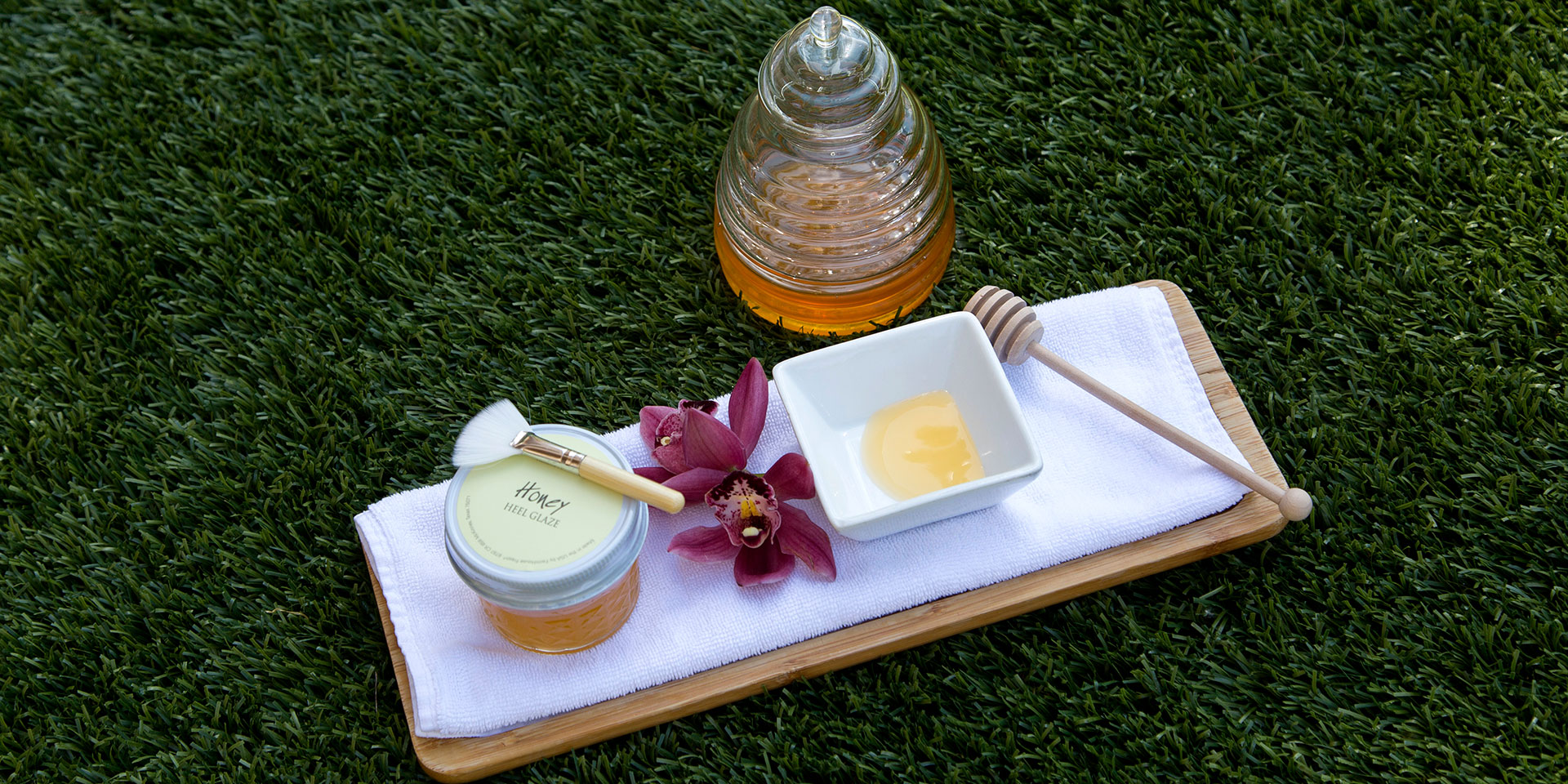
How can resort guests experience the apiary?
I am usually here twice a week to care for the hives. If I am here and a guest wants to come out and learn about the apiary and see the bees, I love the opportunity to show them around. If this is something you want to do, wear light-colored clothing — bees are attracted to dark colors — and comfortable shoes. Allow for an hour or so for the tour and a little education.
It’s important to understand that one teaspoon of honey is the life’s work of 12 bees. It’s not a small feat to make honey, and that’s why honey can be very expensive. The yield is low, but the reward is high. So if you get a chance to taste the honey from a farm, and can actually meet the bees that made it, it’s a special experience.
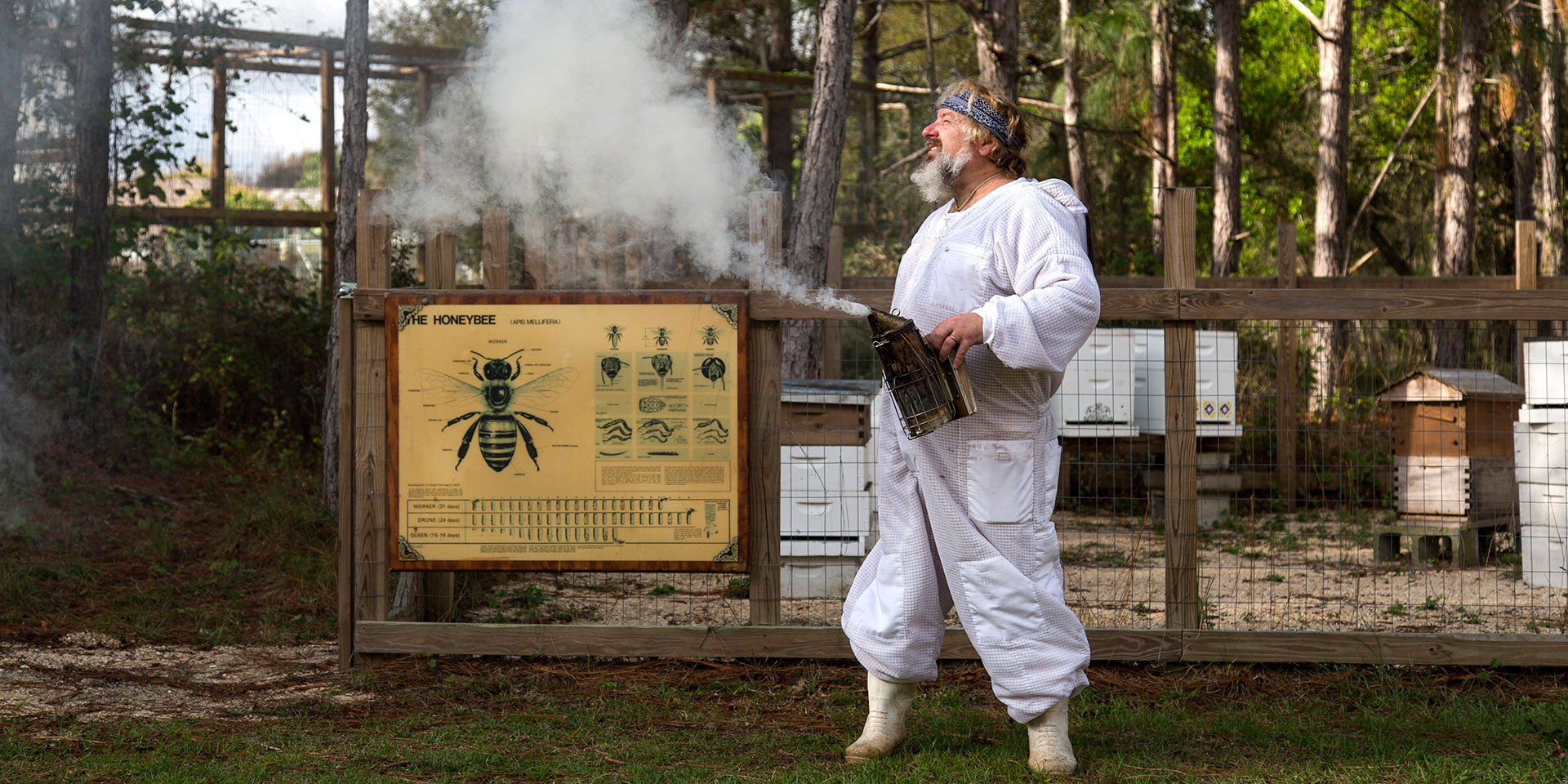
What do you see as trends in beekeeping in hotels and hospitality. Is this a thing now?
It’s very much a thing now. I am still very involved with the American Culinary Federation and have given talks to chefs at the national conventions about beekeeping in hospitality spaces. Chefs are very interested in this. This year, I’ll be doing “A Day in the Field with Chef Jimmy,” where chefs can get hands-on experiences with the bees.
It would be my dream to turn the apiary here at Grande Lakes Orlando into the perfect training ground for other hotels and resorts to learn about this process and the added value it can bring to the guests and to the hotel food and beverage programs.
How do you enjoy honey best?
Neat. Straight from the source and unadulterated, from a teaspoon.






